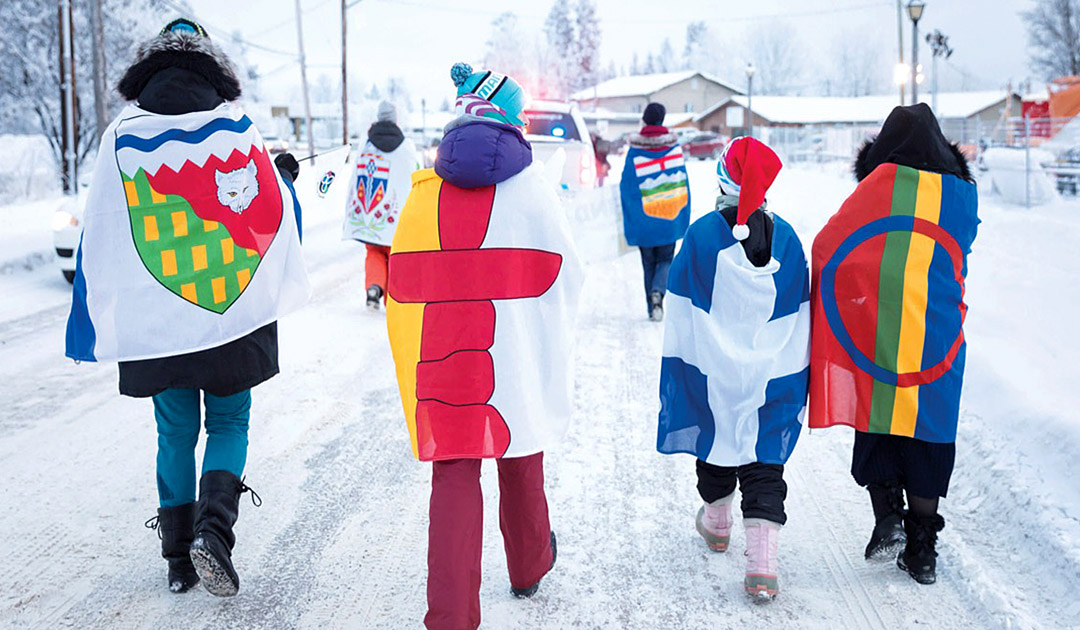
The Arctic Council has been a body dealing with concerns (apart from security policy) in the Arctic since 1996. The eight permanent Council members — Iceland, Denmark/Greenland, Sweden, Finland, Norway, the US, Canada and Russia —meet regularly to address the challenges facing the Arctic and its inhabitants. The council has therefore always been seen as a place of dialogue and cooperation. But this has now changed.
Yesterday, Canada, the United States, Norway, Sweden, Denmark/Greenland, Finland and Iceland released a joint statement announcing that: “our states are temporarily pausing participation in all meetings of the council and its subsidiary bodies (…).” The reason for the interruption of the council’s further work is the Russian invasion of Ukraine, which is condemned by the council’s members and the serious obstacles it has created for international cooperation, including in the Arctic. The seven states further write: “The core principles of sovereignty and territorial integrity, based on international law, have long underpinned the work of the Arctic Council, a forum which Russia currently chairs. In light of Russia’s flagrant violation of these principles, our representatives will not travel to Russia for meetings of the Arctic Council.”

The move by the seven council members to literally put cooperation with Russia on hold until further notice is, on the one hand, surprising, but on the other, a logical continuation of Russia’s isolation from the rest of the international community. Since its formation in 1996, the Arctic Council had actually been seen as a place of continuous dialogue, even in more difficult times. Following the invasion of Ukraine by Russian troops and the increasingly strident official rhetoric, many experts agreed that, at least in the Arctic Council, the possibility of dialogue should remain. But at the same time, it was the governments of the seven states that had imposed severe economic and political sanctions on Russia and had also excluded Russia and Belarus in other areas. One of these areas was the meeting of the Arctic Economic Council, the Arctic Economic Forum, which should have been held in St Petersburg in April. The Economic Council had decided a few days ago to cancel the meeting there in light of Russia’s actions in Ukraine and make it an online meeting. In a statement, the executive director of the Arctic Economic Council, Mads Qvist Frederiksen, said the AEC officially condemned Russia’s invasion of Ukraine and that four of the five members of the board had voted in favor of this condemnation.

Not only economically and politically Russia is sanctioned and isolated by numerous countries and organizations due to its invasion of Ukraine, but also culturally and socially or on a sports level in the Arctic. The International Committee of the Arctic Winter Games announced on March 1 that the Russian delegation from the Yamal region is suspended from participation in the games until further notice. At this point, this means that it will not be able to participate in the games, which will be held from January 29 to February 4, 2023. “The International Committee of the Arctic Winter Games is deeply concerned about the ongoing events in Ukraine and the serious impact on human life,” said AWG International Committee President John Flynn. The games, which are held every two years, are an important cultural and social event with around 2,000 participants from almost all Arctic regions. They are held in a different region each time. They were originally scheduled to take place this year, but were postponed until 2023 due to the Covid pandemic. The next event would have been held in Russia in the Nenets-Yamal region in 2026. However, this is also questionable at the moment.

Will the interruption in the Arctic Council keep the dialog option closed in the polar regions? No, the Arctic Council was just one of the possible dialogue venues. The second major body is the Antarctic Treaty System ATS. Here, since the end of the 1950s, at the height of the Cold War, the various blocs of the time had already met and talked to each other despite ideological and political differences. Since the ATS is not presided over by a country, but decisions are made in a democratic voting process, perhaps there is an opportunity here to facilitate a dialogue behind the scenes (keyword: science diplomacy). This is because all parties involved in the current conflict are represented in the ATS. And the next meeting is already planned for the period from May 23 to June 2, in Berlin. It is to be hoped that the unifying element of Antarctica and the polar region will bring the parties to the table here.
Dr Michael Wenger, PolarJournal





